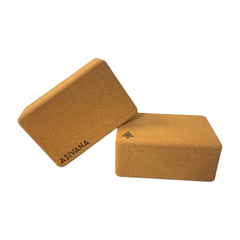What is Jnana Yoga?
Jack UtermoehlShare
Jnana yoga is the path of self-inquiry and wisdom. It focuses on understanding the nature of reality through disciplined study, contemplation, and meditation. Rather than working through the physical body, Jnana yoga invites deep introspection to reveal the truth of the Self and dismantle false identification.
Accessible to practitioners seeking mental clarity and spiritual insight, Jnana yoga is grounded in questioning, discernment, and knowledge. This is a path for those compelled to understand—not just believe—and to realize freedom (moksha) through knowledge (Jnana).
The practice emphasizes self-inquiry (Atma-vichara) and self-study (Svadhyaya), encouraging seekers to dissolve illusions and uncover their true nature. With the guidance of sacred texts and teachers, Jnana yoga becomes an inward journey to spiritual realization.
Origins of Jnana Yoga
Jnana yoga is rooted in Vedantic teachings and is one of the four main paths of yoga described in the Bhagavad Gita. It remains a cornerstone of Hindu philosophy and centers on achieving liberation (moksha) through insight, not ritual or physical practice.
Jnana yoga teaches that suffering is born from ignorance (Avidya) and that liberation is reached through knowledge—deep, internalized understanding of the true Self (atman) as pure consciousness.
Yoga Essentials for Your Practice
Support your yoga journey with high-quality, sustainable props designed for comfort and stability.

Crafted from eco-friendly cork for durability and a comfortable practice.
$24
Shop Now
Includes everything you need to get started: a mat, blocks, and a yoga strap.
$120
Shop NowJnana Yoga Practice
This path centers on focused self-inquiry, critical reflection, and meditation on the teachings of foundational texts such as the Upanishads, Bhagavad Gita, and Brahma Sutras.
Jnana yogis develop viveka (discernment) and vairagya (non-attachment), essential for seeing beyond illusion and ego.
Common Practices: Self-inquiry (Atma-vichara), Study of Scriptures, Meditation, Satsang (spiritual gathering)
Jnana Yoga Suitability
Experience Level: Accessible to All
Physical Demand: Primarily Meditative
Mind-Body Engagement: Primarily Meditative
Adaptability: Individual Study and Reflection
Focus Area: Spiritual Enlightenment & Self-Realization
Notes on Jnana Yoga
Jnana yoga is not a path of intellectualism alone—it’s the discipline of internal truth-seeking.
Practicing Jnana yoga helps dismantle limiting beliefs, clarify perception, and deepen one’s awareness of the Self.
For those on a contemplative path, this method offers profound peace and insight.
Similar Styles
Raja Yoga, Advaita Vedanta, Japa Yoga, Vedanta Study
One of the 4 Primary Paths of Yoga
Bhakti Yoga, Jnana Yoga, Karma Yoga, Kriya Yoga
References
The Upanishads by Various Authors
The Bhagavad Gita by Various Authors
The Brahma Sutras by Various Authors






